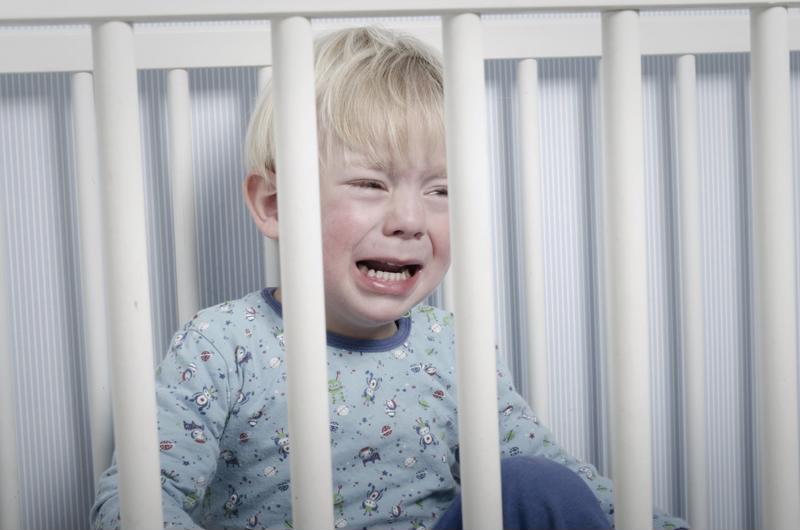Holding your infant is the best feeling in the world, and as a new mom, you’re probably dreading the moment when you and your little one are first separated. This emotional turmoil, known as separation anxiety, happens for mothers and children. It’s absolutely normal but can be completely frustrating in the moment. Here’s how to identify and cope with it:
Separation anxiety in moms
It’s normal to feel nervous when first leaving your little one in someone else’s care. What will happen while you’re away? Will the new caregiver match your parenting style? If not, will your child be left emotionally confused? Will a baby sitter make the same decisions you do in a crisis? What if the world ends and you’re not there?
Obviously, fretting over these questions does you absolutely no good. Nor does experiencing guilt, another common symptom of parental separation anxiety. Isn’t your baby supposed to be the most important thing in your life, you may ask? Certainly, but that doesn’t mean you can’t enjoy a bubble bath or an evening out while your toddler stays with a sitter. Without taking time for yourself, you end up emotionally and physically drained.
Separation anxiety in babies
Children, even young ones, usually adapt well to new caregivers. This isn’t the issue when it comes to separation anxiety. Rather, it’s a problem of developing independence and object permanence. Separation anxiety typically strikes between 8 months and 1 year of age, according to KidsHealth, though it can happen earlier or later depending on the individual child. This is the point at which children start to see themselves and other people as independent beings, and they begin to understand that just because mom goes away doesn’t mean she’s gone forever. The anxiety, however, stems from not knowing when she’ll be back.
 Separation anxiety is normal. Here are ways to cope.
Separation anxiety is normal. Here are ways to cope.How to cope
If you or your child suffer from separation anxiety, take solace in the fact that neither of you have to endure these feelings forever. Most children grow out of the phase relatively quickly, and you’ll soon come to trust that your baby is safe without your watchful eye. Still, if you or your little one are having trouble adjusting, here are some tips that can help:
For mom
- Understand that you aren’t the end all, be all of your baby’s well-being. That’s a lot of pressure, right? Being responsible for every single thing your child does – for example, the tumble she takes in the front lawn or the bouncy ball that hits his head? It’s impossible for you to control everything that happens to your baby, and stressing about this fact doesn’t change it.
- Remind yourself that all humans – even babies – are surprisingly adaptive. A moment away from you won’t scar your child for life. In fact, your baby needs some separation in order to grow into a healthy, functioning adult. Don’t let your anxiety turn you into an overprotective parent.
- Know that taking time for yourself is normal and healthy. You need to recharge, lest your exhaustion compromise your parenting ability. Exhaustion, sleep deprivation and related conditions weaken your immune system, making you more susceptible to illnesses. They also hurt your memory and concentration, neither of which you want when you’re looking after your child.
- Seek professional help if necessary. If normal coping methods don’t work, you may need the help of a psychologist or psychiatrist. Know that there’s no shame in seeking help, especially if it helps you be a better mother.
For baby
- Leave your little one with someone familiar. Relatives or neighbors are great choices, as they’re usually around enough for your baby to be comfortable with them. If you must introduce someone new like a babysitter, have that person spend time with you and your baby before leaving the two of them alone.
- Practice with peek-a-boo. This familiar game helps your baby adjust to the fact that, though you might disappear for a brief spell, you’ll always return. Understanding this idea prevents baby’s anxiety from rising in the first place.
- Don’t wait while your child cries. The tears make you want to stay, but prolonging your departure only makes the inevitable worse. Instead, give your child a quick kiss and head out the door. Don’t worry, your baby will quickly adjust.
- Smile when coming home. Your attitude during the reunion also shapes your baby’s feelings about your departure. Smiling reinforces the idea that separation isn’t forever, and your child will soon anticipate a joyous occasion when you come back.
Separation anxiety is normal in moms and babies, but it doesn’t last forever. It’s simply another phase for the two of you to make it through.
